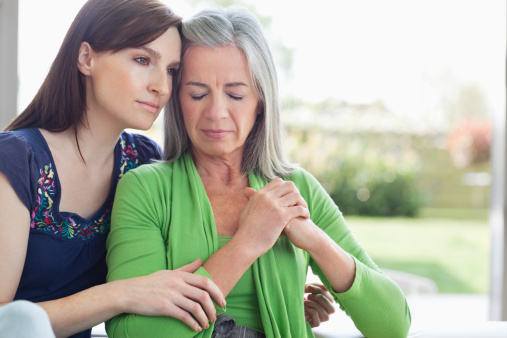 Sometimes what comes after the “C-word” can unfortunately be the “D-word” – divorce. The incidence of divorce/separation is unfortunately quite high after one partner has been diagnosed or is in some stage of battling cancer. If you are a woman, the odds are even less in your favor – according to a study, by the Max Planck Institute, on the effect cancer has on the divorce rate, “21 percent of female cancer patients end up divorced or separated after a cancer diagnosis.”
Both a cancer diagnosis and a divorce cause such emotional devastation. You rarely think that either of these things will ever happen to you; these are things that “happen to other people.” Nancy Cox, a healing coach with the Virginia Piper Cancer Institute, sees the parallels between sitting, angst-ridden, in a doctor’s office and sitting, angst-ridden, in a lawyer’s office. “They both trigger every difficulty you’ve ever faced in your life,” Cox said.
The question then becomes why? Why are so many marriages destroyed by cancer? Maybe the marriage was struggling in the first place, but often times simply the stress of cancer itself can divide a perfectly good marriage. Reassessment goes both ways in a relationship and some marriages can’t handle all the stresses and strains that cancer can bring. Dealing with a diagnosis of cancer can certainly magnify certain feelings already present, as well as create new feelings of uncertainty due to dealing with cancer itself.
Big challenges like cancer, a life changing accident, other major illness, infertility, or a child with disabilities, can either bring you closer together or tear you apart. Cancer changes a person and emotionally you are in a different place after having the cancer. Sometimes fighting a battle like cancer proves to a person just how strong they are and perhaps now have the strength to leave a marriage that wasn’t quite right to begin with.
Whether it’s cancer or divorce, a good starting point is to begin rallying your troops around you. Call your closest family and friends and break the news to them. Then seek out the best professionals to guide you through, whether it’s the top divorce lawyer in town, or the best oncologist. Seeking therapy is a good idea both during and after. Both cancer and divorce also offer the potential for healing. “Any crisis creates opportunity, if one can re-frame it and get the level of support needed to have that happen,” Cox said. Once you battle cancer, divorce, or both, you are forever a survivor.
Sometimes what comes after the “C-word” can unfortunately be the “D-word” – divorce. The incidence of divorce/separation is unfortunately quite high after one partner has been diagnosed or is in some stage of battling cancer. If you are a woman, the odds are even less in your favor – according to a study, by the Max Planck Institute, on the effect cancer has on the divorce rate, “21 percent of female cancer patients end up divorced or separated after a cancer diagnosis.”
Both a cancer diagnosis and a divorce cause such emotional devastation. You rarely think that either of these things will ever happen to you; these are things that “happen to other people.” Nancy Cox, a healing coach with the Virginia Piper Cancer Institute, sees the parallels between sitting, angst-ridden, in a doctor’s office and sitting, angst-ridden, in a lawyer’s office. “They both trigger every difficulty you’ve ever faced in your life,” Cox said.
The question then becomes why? Why are so many marriages destroyed by cancer? Maybe the marriage was struggling in the first place, but often times simply the stress of cancer itself can divide a perfectly good marriage. Reassessment goes both ways in a relationship and some marriages can’t handle all the stresses and strains that cancer can bring. Dealing with a diagnosis of cancer can certainly magnify certain feelings already present, as well as create new feelings of uncertainty due to dealing with cancer itself.
Big challenges like cancer, a life changing accident, other major illness, infertility, or a child with disabilities, can either bring you closer together or tear you apart. Cancer changes a person and emotionally you are in a different place after having the cancer. Sometimes fighting a battle like cancer proves to a person just how strong they are and perhaps now have the strength to leave a marriage that wasn’t quite right to begin with.
Whether it’s cancer or divorce, a good starting point is to begin rallying your troops around you. Call your closest family and friends and break the news to them. Then seek out the best professionals to guide you through, whether it’s the top divorce lawyer in town, or the best oncologist. Seeking therapy is a good idea both during and after. Both cancer and divorce also offer the potential for healing. “Any crisis creates opportunity, if one can re-frame it and get the level of support needed to have that happen,” Cox said. Once you battle cancer, divorce, or both, you are forever a survivor.
Two Paths, One Decision: The Divorce Dilemma
Emily and Daniel were in love. Their love story had once been the envy of the neighborhood—a whirlwind romance that blossomed into a marriage filled with laughter, shared dreams, and whispered secrets. But as the years went by, cracks appeared in their fairy tale....



